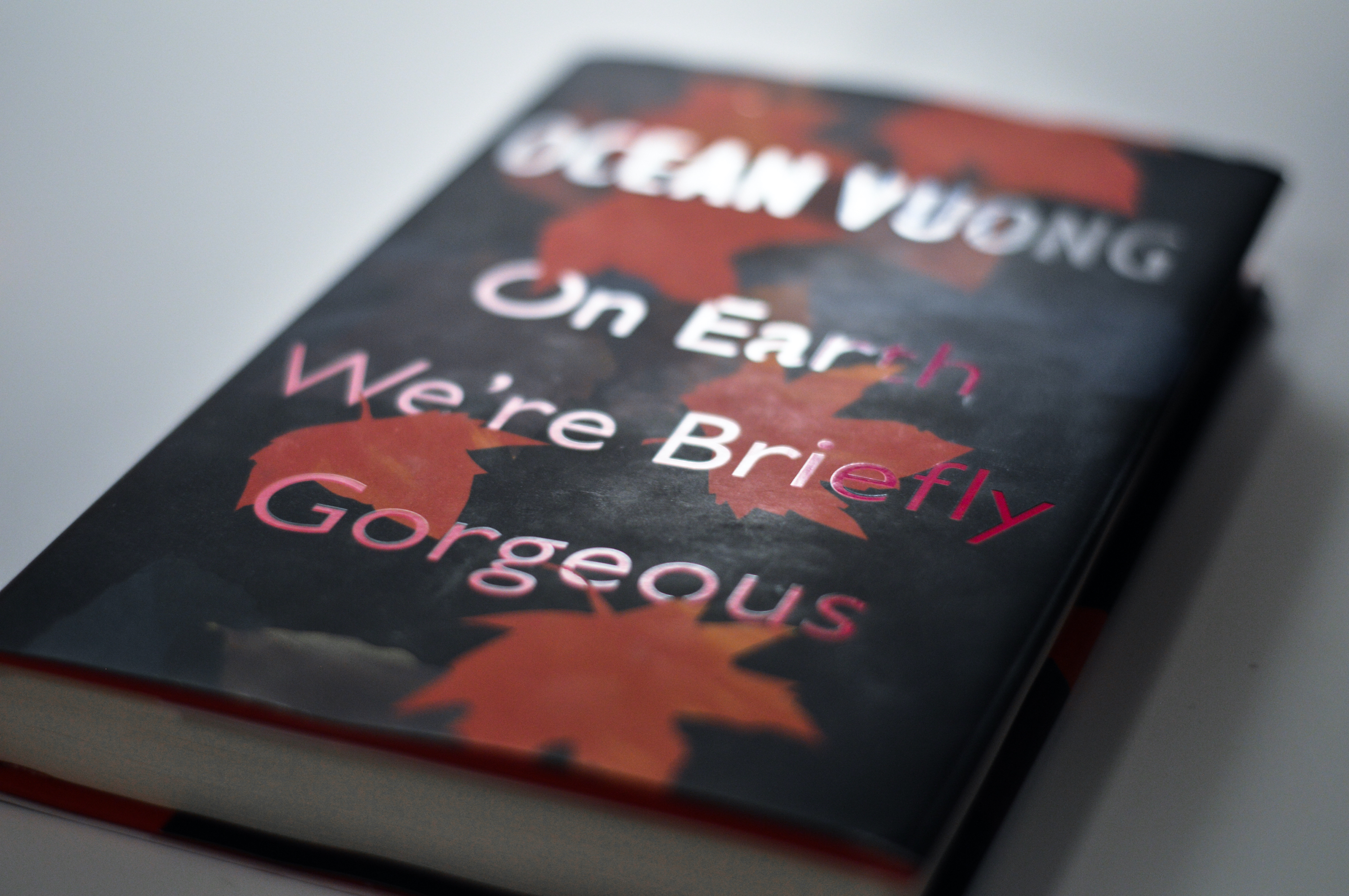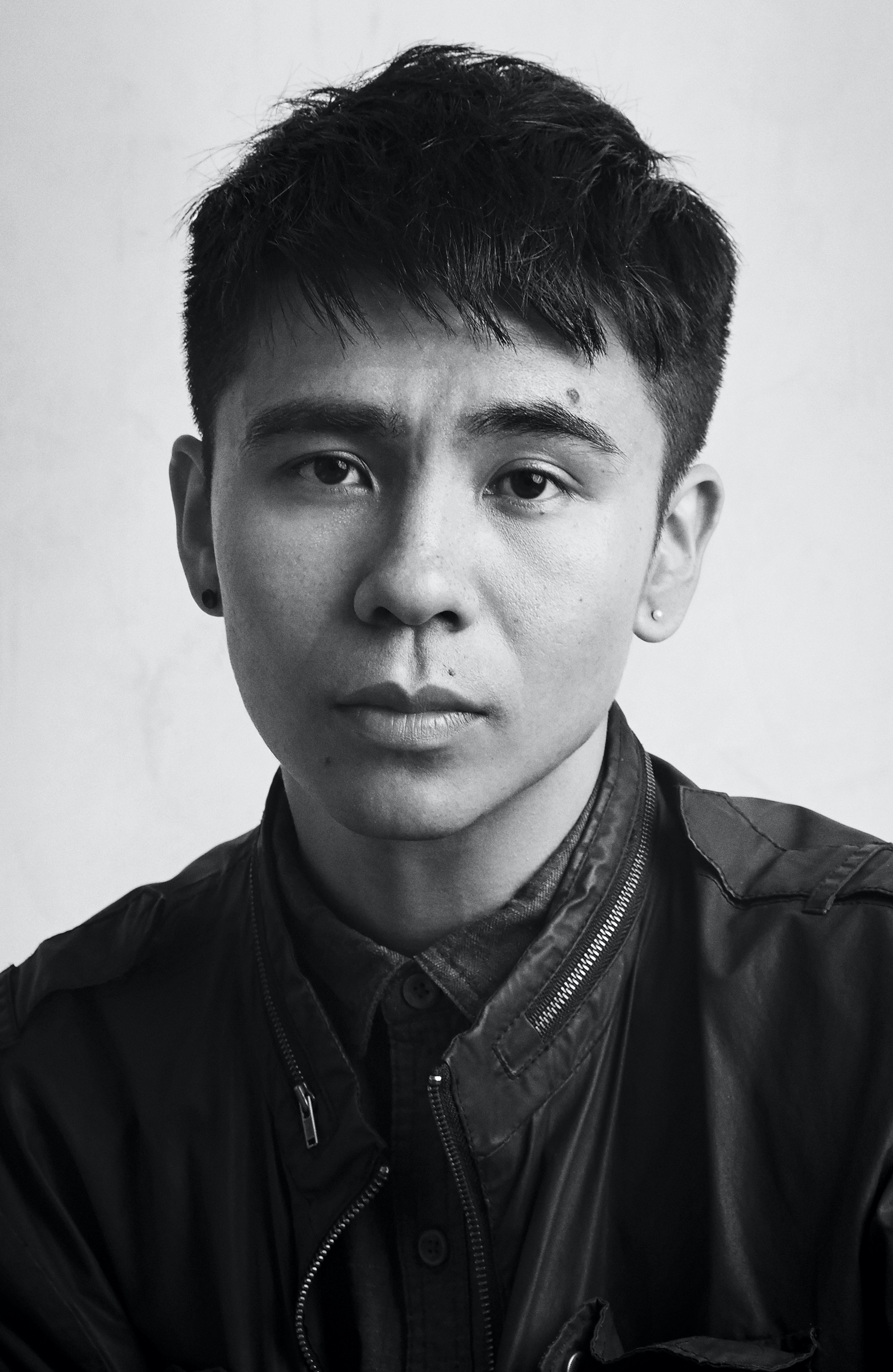Published May 15th, 2021
Review
by Lucija Todoric
Ocean Vuong’s novel On Earth We’re Briefly Gorgeous narrates Little Dog’s coming-of-age story written as letters to his illiterate mother. Little Dog’s story mirrors Vuong’s own life as he discusses the intersection of multiple traumas that ultimately lead to cathartic healing and acceptance.
Ocean Vuong is a Vietnamese-born, Connecticut-raised bestselling novelist and poet. Vuong received multiple awards for his writings, such as the TS Eliot Prize, the Whiting Award, and the Thom Gunn Award for his poetry collection Night Sky with Exit Wounds. On Earth We’re Briefly Gorgeous, his debut novel was published in 2019 and has been translated into 30 languages. A film adaptation has also been announced in December of 2020.

The novel brings us the story of Little Dog, a Vietnamese boy growing up in Hartford, Connecticut. Written in epistolary form, the novel is a long letter from Little Dog to his mother, Rose, in which he pours his soul out, creating a wonderful and powerful image of a boy learning and growing, adapting and failing, hurting and healing. The tragic aspect of this long confessional letter is that it will remain unread as his mother cannot read. However, it becomes clear that Little Dog is writing to remember his upbringing and his experience in navigating immigration, race, sexuality, violence, trauma, and (forbidden) love.
Little Dog’s family consists of his mother, Rose, and his maternal grandmother Lan who is the reason why the family moved to the US. After escaping an arranged marriage, Lan came to Saigon, Vietnam. She was forced to work as a prostitute during the Vietnam War, which is how Rose is conceived. She then met Paul, a US soldier. The pair married, had two children, and, following the fall of Saigon, separated and lost contact until the 1990s, prompting the family’s relocation.
As a bastard child of a prostitute and an American soldier, Rose is visibly paler, making her the subject of incessant and cruel bullying. She suffers the cruelty of her peers and witnesses a napalm raid of her school, which stops her from ever getting an education. She marries Little Dog’s unnamed father, who is sent to jail for brutally assaulting her not long after their move to the US. Rose finds work as a manicurist at a salon, and as the household’s sole breadwinner, she is forced to work long hours. Both Lan and Rose suffer from mental illnesses, and Little Dog bears witness to many episodes of PTSD and mania. In the novel, he often ponders the effects trauma had on his family and his life with them.
“They say trauma affects not only the brain, but the body too, its musculature, joints and posture. Lan’s back was perpetually bent— so much so that I could barely see her head as she stood at the sink.” (19)
The novel is also an account of the relationship between Little Dog and Trevor, an “impossibly American” boy. Little Dog meets Trevor while working on a tobacco farm owned by Trevor’s grandfather. The two become close and become sexually involved pretty soon afterward.
Trevor comes from another broken home: his father is an alcoholic and beats him, his mother left to live with her boyfriend, and at the young age of 15, Trevor is prescribed OxyContin for his injury, which pretty soon causes him to develop a drug addiction.
As their relationship develops and as they experiment, it is obvious that their relationship is not sustainable. Trevor’s vulnerability with Little Dog and Little Dog’s submissiveness with Trevor are discussed in such incredible and delicate detail. Their futile attempts to escape the ‘rules’ and the norms superimposed on young boys to be masculine are depicted with such poignancy. Their mutual love and affection, however, cannot stand the test of time and maturity. Little Dog goes off to college, and Trevor stays behind, a tale as old as time.
The inclusion of poetry in the most monumental and intimate parts of the novel creates another dimension of added intimacy between the author and his mother, making the audience feel like intruders.
“I begged. 'Fuck me up, fuck me up.' By then violence was already mundane to me, was what I knew, ultimately, of love. Fuck. Me. Up. It felt good to name what was already happening to me all my life.” (119)
On Earth We’re Briefly Gorgeous resembles Vuong’s own life, and as an epistolary novel, it radiates intimacy and closeness between the narrator and the audience. While reading this novel for the first time, I felt like an intruder, a third wheel, stuck in a room with a mother and her son, bearing his soul and yearning for understanding.

While writing this letter to his mother, Little Dog reveals himself and, through being completely open and honest, heals himself. He learns to accept himself and his surroundings as well as his heritage. The strength of Little Dog, his mother, and grandmother and their interwoven experiences brought out many tears on my part. Still, there was also laughter and warmth and love and acceptance among the slaughter of the harsh reality.
Vuong skillfully portrays Little Dog's journey: growing up in an abusive environment and coming back to face the ghosts of the past. Through writing, Little Dog begins his healing journey, which revolves around breaking the cycle of trauma and pain. I believe that Vuong's novel will soon become one of the classics of American Literature, and it definitely deserves a spot in anyone's collection. I am personally looking forward to reading his future works.
Nationality: Croatian
First Language(s): Croatian
Second Language(s):
English,
German,
Spanish,
Russian
Supported by:


Comments on "“The word laughter is trapped inside slaughter”: Trauma, Vulnerability, and Healing in "On Earth We’re Briefly Gorgeous" by Ocean Vuong — A Review"
Please log in to submit a comment.
Login